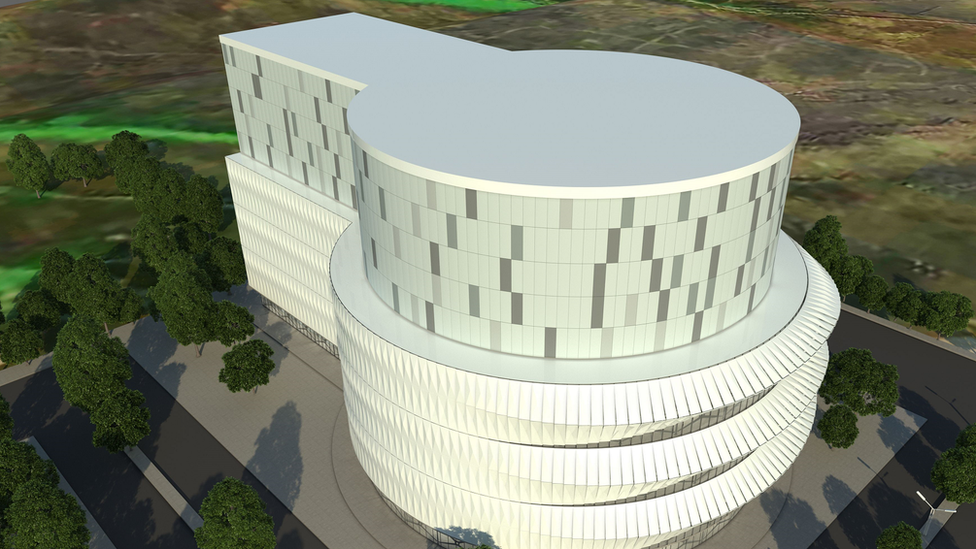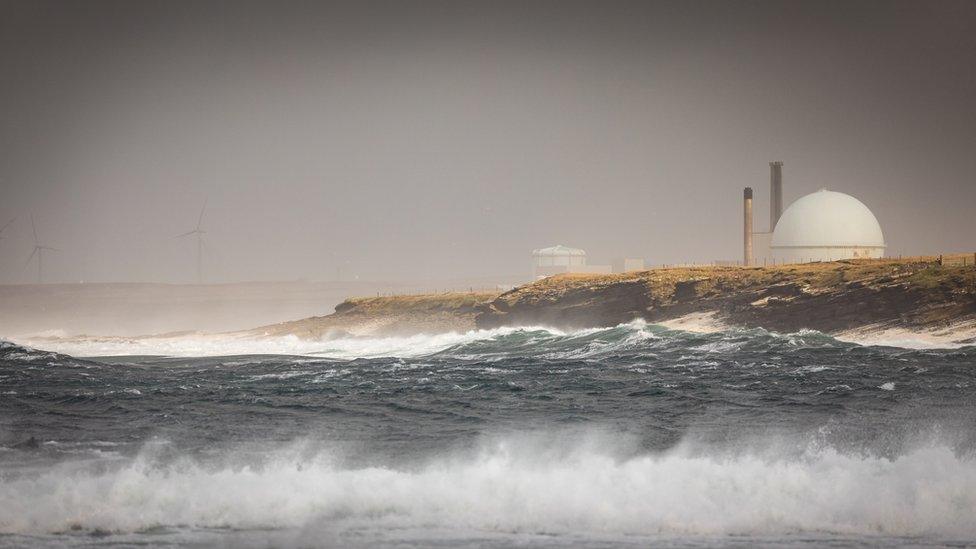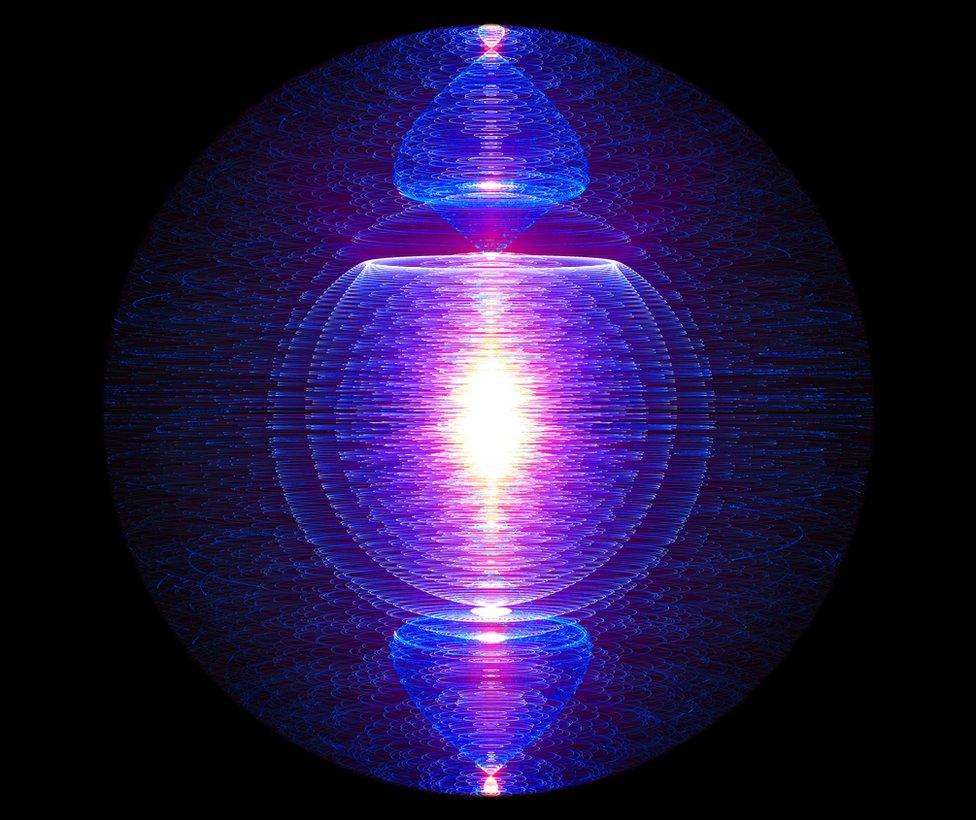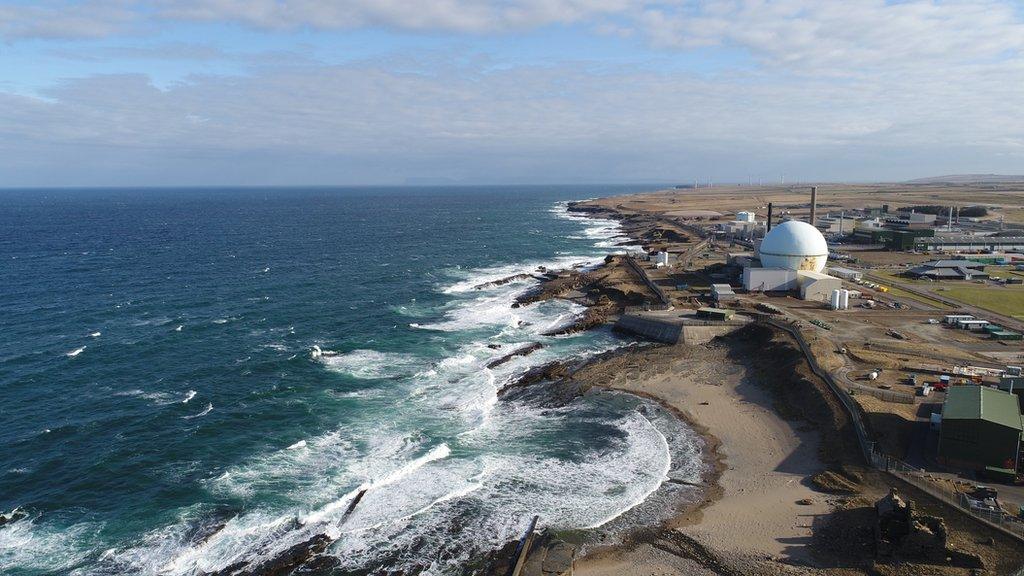Dounreay bid suggested for fusion power plant
- Published

The UK government is seeking a site for an experimental fusion power plant
Highland councillors are to discuss making a bid for a prototype fusion power plant to be built in Caithness.
Fusion is a potential source of almost limitless clean energy but the process is currently only used in experiments.
The UK government is seeking sites to build what it said would be the UK's, and potentially the world's, first prototype commercial reactor.
Highland Council has suggested the potential for locating it at the Dounreay nuclear complex near Thurso.
Other places potentially in the running for the prototype reactor include Chapelcross nuclear site near Annan in Dumfries and Galloway and Ratcliffe-on-Soar coal power station in Nottinghamshire.
Dounreay was the UK site for the development of fast reactor research from 1955 to 1994.
Its Dounreay Fast Reactor (DFR) was the first fast-breeder reactor in the world to produce electricity for public consumption in 1962.
The site is in the process of being decommissioned and work is ongoing to find ways of retaining and creating jobs in Caithness and neighbouring parts of Sutherland.

Dounreay is in the process of being decommissioned
Highland councillors will discuss at a meeting next week making a bid to the UK Atomic Energy Authority for the prototype reactor to be constructed at Dounreay.
A report prepared for Thursday's meeting said the project offered potential "significant long-term economic benefits", with funding of £222m to be made available just for the concept design stage.
Council officials said in the report: "Not only would the attraction of such a significant investment be a major boost to the north economy, it could lead to significant supply chain, innovation and educational opportunities for generations to come."

What is fusion?


Fusion - the process which goes on inside the sun - creates energy by forcing atoms together.
It is the opposite of standard nuclear reactors which rely on fission, breaking atoms apart.
Fusion is viewed as safe and clean but has so far proved difficult to harness.
Critics have said there are still huge hurdles to overcome and some experts believe existing, proven renewable technologies offer a more economical and timely way of tackling climate change.
Read more: Nuclear fusion: 'A question of when, not if'.
Related topics
- Published9 September 2020

- Published20 August 2020
